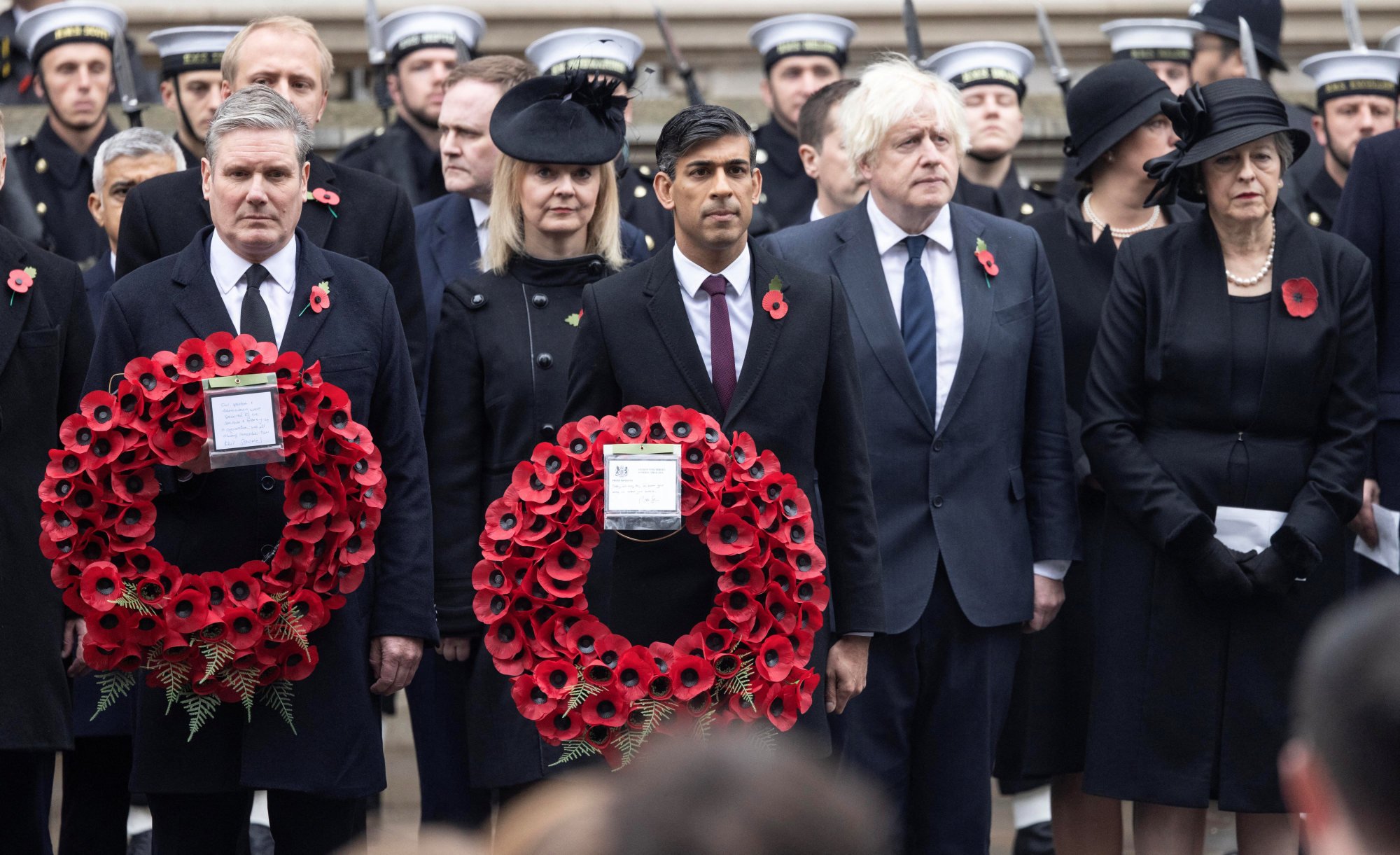
King Charles and PM Rishi Sunak lead remembrance services after day of protests
- The king, Sunak, MPs and royal family members held a two-minute silence and laid wreaths at the Cenotaph in London to honour those killed in war
- On Saturday, 300,000 pro-Palestinian demonstrators marched in London. Police made more than 120 arrests as counterprotesters tried to ambush the rally
King Charles and Prime Minister Rishi Sunak led Britain in remembering the country’s war dead on Sunday, seeking to unify communities a day after a large pro-Palestinian march was marked by skirmishes between far-right counterprotesters and police.

On Saturday, the annual Armistice Day commemoration marking the end of World War saw more than 300,000 pro-Palestinian demonstrators march through central London, with police arresting more than 120 people as they sought to stop far-right counter protesters from ambushing the main rally.
After opposition politicians blamed Suella Braverman, home secretary, for fuelling tensions in the run-up to the march, Defence Minister Grant Shapps said he would not have used the language she did in an article criticising the police.
“I’m saying I do think it’s very important that the police do act quickly,” he said.
Braverman, who is responsible for policing, was criticised by lawmakers from the opposition and her own party for using an article last week to accuse the police of “double standards” in the way it treats protests, notably pro-Palestinian marches.
Yvette Cooper, opposition Labour’s home affairs policy chief, told Sky News Braverman’s actions were designed “to deliberately inflame tensions in the run-up to Remembrance weekend”.
“She should not have been doing this job in the first place and Rishi Sunak let her and he is too weak to do anything about it … I don’t see how she can continue to do this job.”
On Saturday, Sunak condemned the scenes of violence, saying: “Remembrance weekend is a time for us to come together as a nation and remember those who fought and died for our freedoms. The unacceptable scenes today disrespect their memory.”

